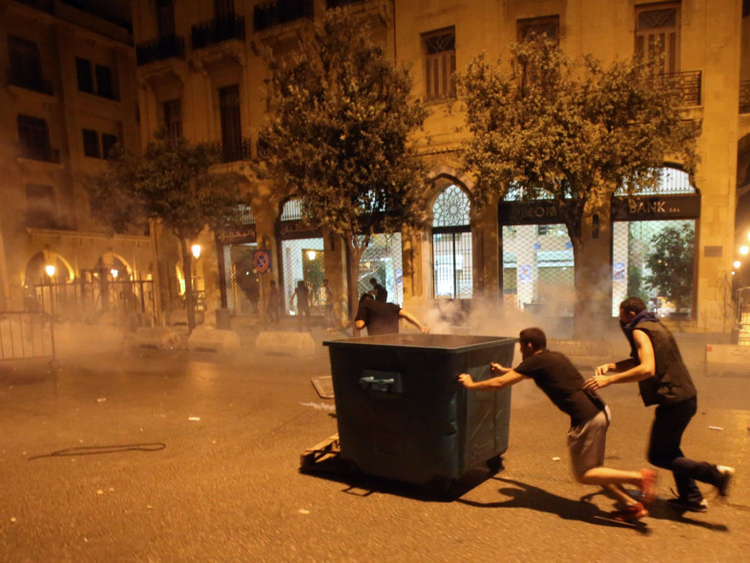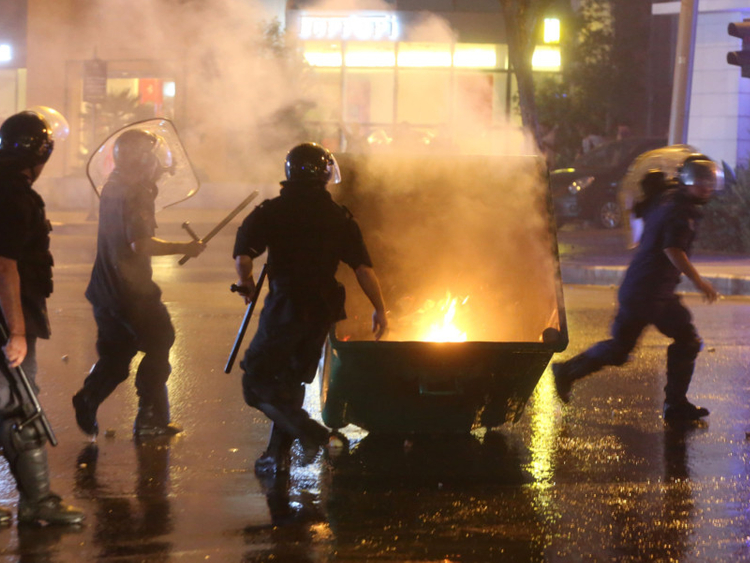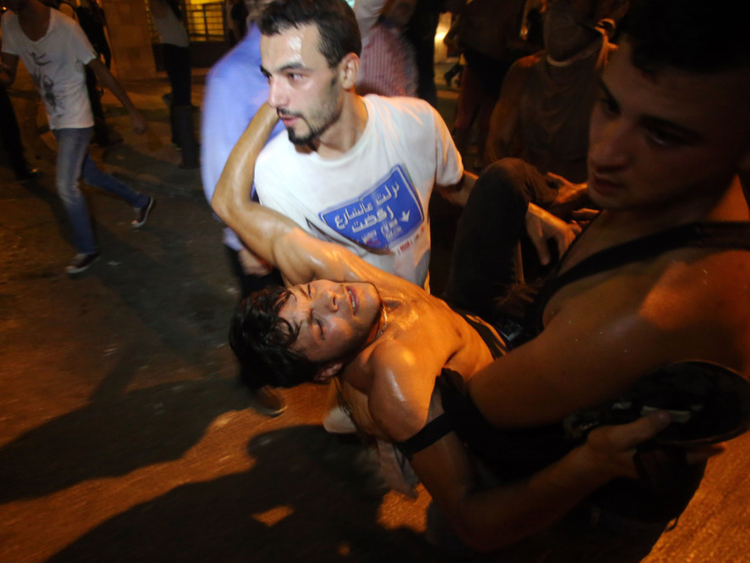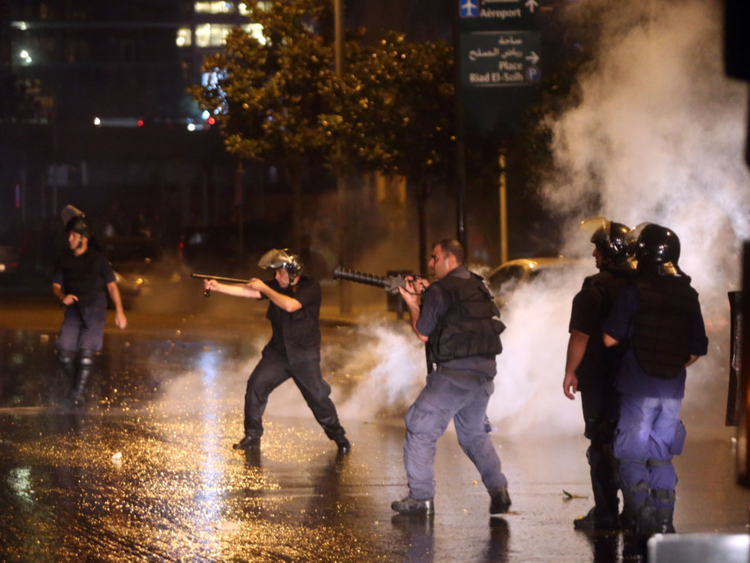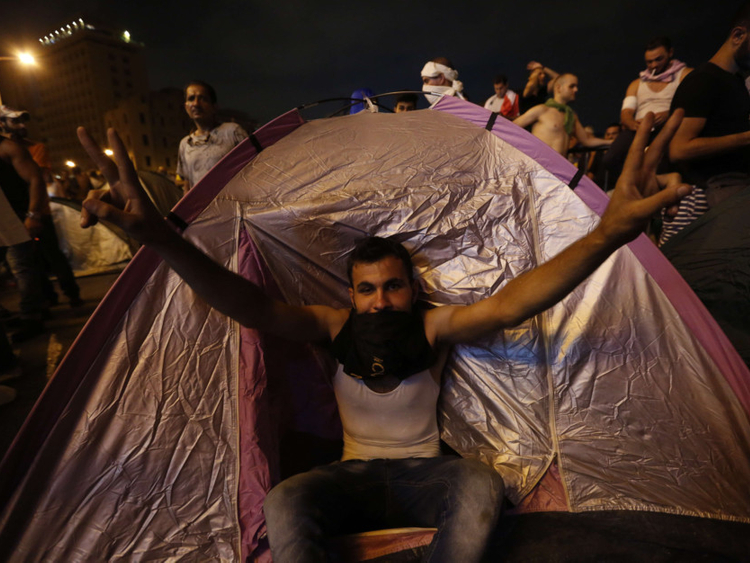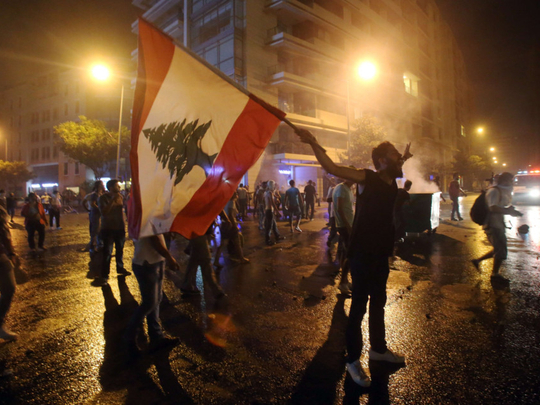
Beirut: Lebanese Internal Security Forces (ISF), backed by anti-riot police troops, clashed with a large group of protestors trying to move from Riad Al Solh to Nijmeh Square where the Parliament building is located. Police fired tear gas, rubber bullets and water cannons after many tried to break through a defense cordon in what is a “security zone” close to the Grand Serail [Government House] that also happens to abut Beirut’s financial district.
Television channels interrupted programmes to broadcast live clashes that turned parts of downtown Beirut into a war zone, as protesters hurled water bottles, garbage bags, and rocks on police to stop the latter from chasing them out of the area.
At least 15 were injured that required hospitalization and scores were arrested. An ISF spokesperson claimed that 35 policemen were injured in the confrontations.
Demonstrators, part of the “You Stink” movement, were anxious to express their opposition to the government’s nonchalance in dealing with the uncollected rubbish that continued to accumulate on all roads throughout the capital and across Mount Lebanon. Although long anticipated, the July 17 closure of the Naameh landfill created a serious health hazard, partially the result of political differences that paralyzed the decision-making process that was only surpassed by advanced corruption mechanisms in place. Indecisions and interminable expert conversations postponed sorely needed actions—to collect the accumulating garbage before the onset of traditional September rains that would further add to the misery imposed on residents—which was what prompted protestors to mobilize.
What stood out on Saturday were the slogans that called for the fall of the regime—since Lebanon was without a president, this meant the Prime Minister and his cabinet—and for the resignation of Mohammad Mashnouq, the Minister of Environment. “The government is dirty,” many intoned, and “the people want to topple the regime,” which was the famous phrase used by Arab Uprising protestors starting in March 2011.
Demonstrators held placards that read “A Government of Garbage” or that showed photos of Lebanese politicians placed in trash bags, and saying: “Some trash should not be recycled.”
Typical of Lebanese voyeurism, officials took to the airwaves to express their regret on the use of force by police, with Free Patriotic Movement (FPM) ministers—the very individuals who blocked discussions in the cabinet before a preferred partnership mechanism was adopted—among the most vocal.
Minister of Education Elias Bou Saab told LBCI: “I am not honored to be part of this government,” and accused Interior Minister Nouhad Mashnouq of overreacting and ordering the “attack on peaceful protesters.”
“This is a dark day in Lebanon’s history,” Bou Saab added.
Health Minister Wael Abou Faour urged police not to use force and asked demonstrators not to hurl stones on security forces.
“All those who have taken the decision to use force should be held accountable,” Abou Faour, as he urged “You Stink” organizers to form a delegation and meet with Prime Minister Tammam Salam. Abou Faour’s nominal Progressive Socialist Party chief, Walid Junblat, used stronger words, when he exclaimed: “enough lying. [Nouhad] Mashnouq is responsible and he should leave,” though he did not call on his party’s ministers to resign.
Phalange leader Sami Gemayel insisted that it was “unacceptable to deal with demonstrators this way,” and claimed he was thinking whether the party’s three ministers would resign from the cabinet.
The FPM’s Nabil Nicolas announced that he was suspending his membership in parliament until officials responsible for the use of force against demonstrators were held accountable.
The Lebanese government remained locked in existential disputes over how to govern in the absence of a head-of-state, unable to look after routine matters and unwilling to put differences aside, which drained everyone’s patience.
FPM ministers, backed by Hezbollah, maintained their intransigence, persuaded that various crises advanced their righteousness even if public anger against the entire political class threatened to sink the ship of state and down everyone in it.


